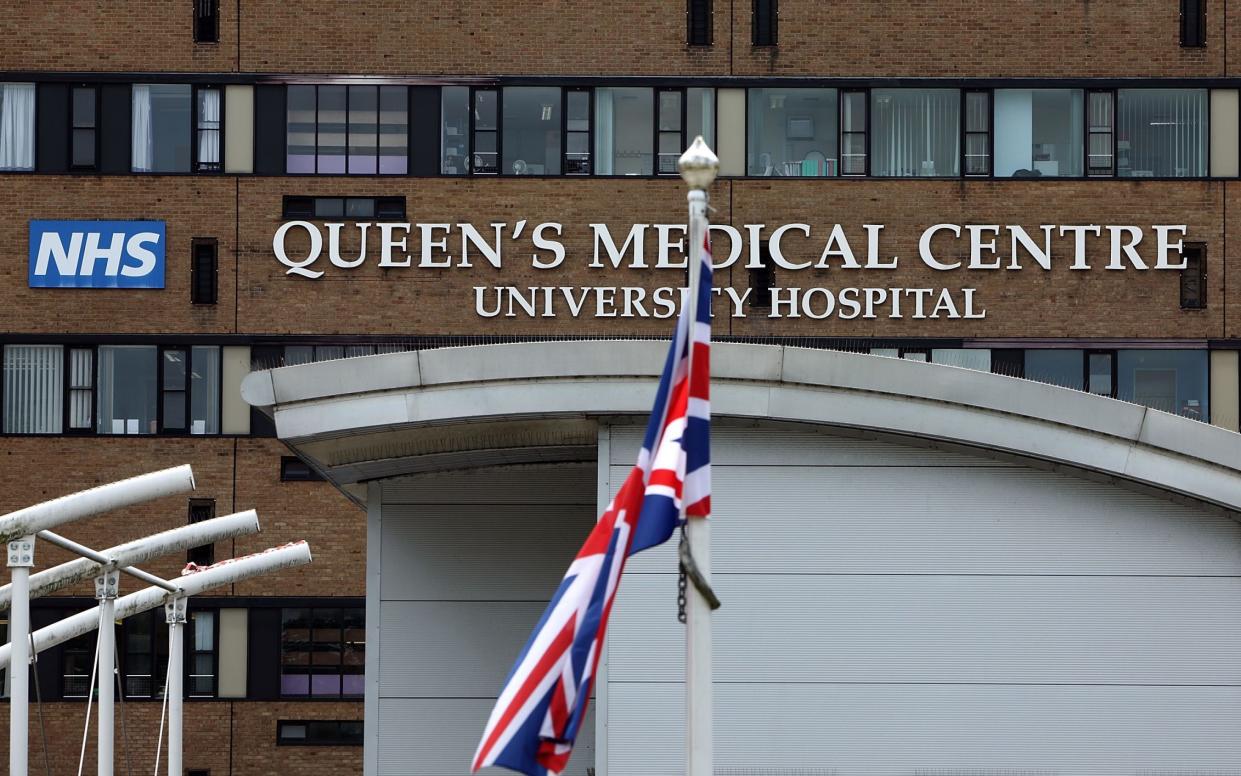Chemotherapy rationed amid shortage of NHS staff to deliver it

NHS cancer patients in some areas have had their chemotherapy stopped because there are not enough staff to deliver it.
People with advanced forms of the disease are being denied the treatment so scarce resources can be directed towards those with a chance of survival, it has emerged.
The rationing, which one of England's largest trusts has admitted is taking place, could result in depriving patients with incurable cancer of extra weeks and months with their loved ones.
On Friday night, Nottingham University Hospitals NHS Trust said it was urgently trying to fill vacant posts and hoped to be able to offer chemotherapy to all who needed it by some stage next month.
It came after an oncologist spoke out about deteriorating levels of care, warning that the situation was now worse than at any point since the start of Covid.
The warning follows a report predicting that even if oncology departments boost the number of patients they see by five per cent, the cancer treatment backlog will take more than a decade to clear. Experts also believe there are an estimated 19,500 people living with undiagnosed cancer as a result of the pandemic.
‘It’s indicative of a system on its last legs’
Last March, The Telegraph revealed that NHS England had authorised hospitals to ration cancer services to patients with the greatest chance of survival if the system became overwhelmed due to Covid.
Dr Lucy Gossage, a consultant oncologist at Nottingham University Hospitals NHS Trust, this week said it had never had to use the protocol until now but added: "Right now, we don't have the staffing capacity to deliver chemotherapy to all our patients and so, for the first time, the prioritisation list has come into force.
"And that means that, currently, we are unable to offer chemotherapy that aims to prolong life or palliate symptoms for people with advanced cancer. We hope that this is very temporary, but it's indicative of a system on its last legs.
"As oncologists, we're not used to apologising for a broken system – and that, right now, is what we're doing every day. This is not ok. Our patients are not ok. We are not ok."
Boris Johnson warned this month that NHS waiting lists would "get worse before they get better". The health service faces an overall record backlog of around 5.5 million people, while planners are concerned about an estimated seven million patients who did not come forward for treatment since the start of the pandemic.
A spokesman for Nottingham University Hospitals NHS Trust said vacancies and long-term staff sickness were contributing to the crisis.
"We continue to provide chemotherapy to patients who benefit most from the treatment and the small number of patients affected have been contacted directly by their specialist cancer team and offered support," he said. "We are deeply sorry for the concern and upset this has caused.
"We are recruiting to posts and continuing to progress a series of options which will deliver additional capacity outside of the trust. We expect to be in a position to restart chemotherapy for all patients who require it in October."

